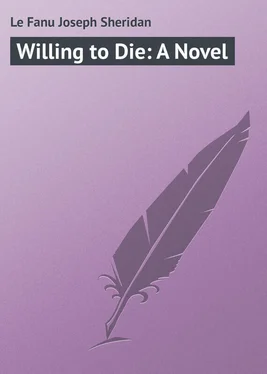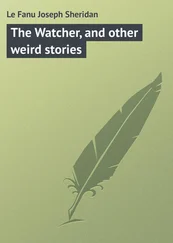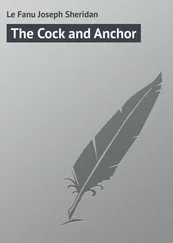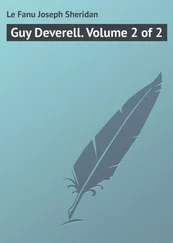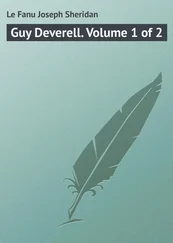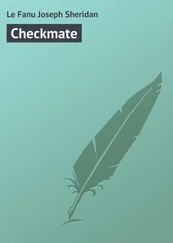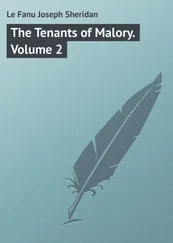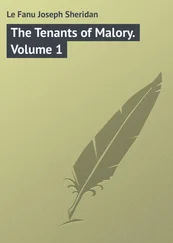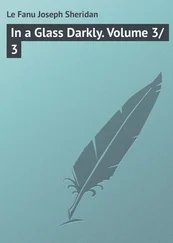Joseph Le Fanu - Willing to Die - A Novel
Здесь есть возможность читать онлайн «Joseph Le Fanu - Willing to Die - A Novel» — ознакомительный отрывок электронной книги совершенно бесплатно, а после прочтения отрывка купить полную версию. В некоторых случаях можно слушать аудио, скачать через торрент в формате fb2 и присутствует краткое содержание. Жанр: foreign_prose, на английском языке. Описание произведения, (предисловие) а так же отзывы посетителей доступны на портале библиотеки ЛибКат.
- Название:Willing to Die: A Novel
- Автор:
- Жанр:
- Год:неизвестен
- ISBN:нет данных
- Рейтинг книги:5 / 5. Голосов: 1
-
Избранное:Добавить в избранное
- Отзывы:
-
Ваша оценка:
- 100
- 1
- 2
- 3
- 4
- 5
Willing to Die: A Novel: краткое содержание, описание и аннотация
Предлагаем к чтению аннотацию, описание, краткое содержание или предисловие (зависит от того, что написал сам автор книги «Willing to Die: A Novel»). Если вы не нашли необходимую информацию о книге — напишите в комментариях, мы постараемся отыскать её.
Willing to Die: A Novel — читать онлайн ознакомительный отрывок
Ниже представлен текст книги, разбитый по страницам. Система сохранения места последней прочитанной страницы, позволяет с удобством читать онлайн бесплатно книгу «Willing to Die: A Novel», без необходимости каждый раз заново искать на чём Вы остановились. Поставьте закладку, и сможете в любой момент перейти на страницу, на которой закончили чтение.
Интервал:
Закладка:
Le Fanu Joseph Sheridan
Willing to Die: A Novel
First, I must tell you how I intend to relate my story. Having never before undertaken to write a long narrative, I have considered and laid down a few rules which I shall observe. Some of these are unquestionably good; others, I daresay, offend against the canons of composition; but I adopt them, because they will enable me to tell my story better than, with my imperfect experience, better rules possibly would. In the first place, I shall represent the people with whom I had to deal quite fairly. I have met some bad people, some indifferent, and some who at this distance of time seem to me like angels in the unchanging light of heaven.
My narrative shall be arranged in the order of the events; I shall not recapitulate or anticipate.
What I have learned from others, and did not witness, that which I narrate, in part, from the hints of living witnesses, and, in part, conjecturally, I shall record in the historic third person; and I shall write it down with as much confidence and particularity as if I had actually seen it; in that respect imitating, I believe, all great historians, modern and ancient. But the scenes in which I have been an actor, that which my eyes have seen, and my ears heard, I will relate accordingly. If I can be clear and true, my clumsiness and irregularity, I hope, will be forgiven me.
My name is Ethel Ware.
I am not an interesting person by any means. You shall judge. I shall be forty-two my next birthday. That anniversary will occur on the first of May, 1873; and I am unmarried.
I don't look quite the old maid I am, they tell me. They say I don't look five-and-thirty, and I am conscious, sitting before the glass, that there is nothing sour or peevish in my features. What does it matter, even to me? I shall, of course, never marry; and, honestly, I don't care to please any one. If I cared twopence how I looked, I should probably look worse than I do.
I wish to be honest. I have looked in the glass since I wrote that sentence. I have just seen the faded picture of what may have been a pretty, at least what is called a piquant face; a forehead broad and well-formed, over which the still dark-brown hair grows low; large and rather good grey eyes and features, with nothing tragic, nothing classic – just fairly good.
I think there was always energy in my face! I think I remember, long ago, something at times comic; at times, also, something sad and tender, and even dreamy, as I fixed flowers in my hair or talked to my image in the glass. All that has been knocked out of me pretty well. What I do see there now is resolution.
There are processes of artificial hatching in use, if I remember rightly, in Egypt, by which you may, at your discretion, make the bird all beak, or all claw, all head, or all drumstick, as you please to develope it, before the shell breaks, by a special application of heat. It is a chick, no doubt, but a monstrous chick; and something like such a chick was I. Circumstances, in my very early days, hatched my character altogether out of equilibrium.
The caloric had been applied quite different in my mother's case, and produced a prodigy of quite another sort.
I loved my mother with a very warm, but, I am now conscious, with a somewhat contemptuous affection. It never was an angry nor an arrogant contempt; a very tender one, on the contrary. She loved me, I am sure, as well as she was capable of loving a child – better than she ever loved my sister – and I would have laid down my life for her; but, with all my love, I looked down upon her, although I did not know it, till I thought my life over in the melancholy honesty of solitude.
I am not romantic. If I ever was it is time I should be cured of all that. I can laugh heartily, but I think I sigh more than most people.
I am not a bit shy, but I like solitude; partly because I regard my kind with not unjust suspicion.
I am speaking very frankly. I enjoy, perhaps you think cynically, this hard-featured self-delineation. I don't spare myself; I need not spare any one else. But I am not a cynic. There is vacillation and timidity in that ironical egotism. It is something deeper with me. I don't delight in that sordid philosophy. I have encountered magnanimity and self-devotion on earth. It is not true that there is neither nobility nor beauty in human nature, that is not also more or less shabby and grotesque.
I have an odd story to tell. On my father's side I am the grand-daughter of a viscount; on my mother's, the grand-daughter of a baronet. I have had my early glimpses of the great world, and a wondrous long stare round the dark world beneath it.
When I lower my hand, and in one of the momentary reveries that tempt a desultory writer tickle my cheek slowly with the feathered end of my pen – for I don't incise my sentences with a point of steel, but, in the old fashion, wing my words with a possibly too appropriate grey-goose plume – I look through a tall window in an old house on the scenery I have loved best and earliest in the world. The noble Welsh mountains are on my right, the purple headlands stooping grandly into the waves; I look upon the sea, the enchanted element, my first love and my last! How often I lean upon my hand and smile back upon the waters that silently smile on me, rejoicing under the summer heavens; and in wintry moonlights, when the north wind drives the awful waves upon the rocks, and I see the foam shooting cloud after cloud into the air, I have found myself, after long hours, still gazing, as if my breath were frozen, on the one peaked black rock, thinking what the storm and foam once gave me up there, until, with a sudden terror, and a gasp, I wake from the spell, and recoil from the white image, as if a spirit had been talking with me all the time.
From this same window, in the fore-ground, I see, in morning light or melancholy sunset, with very perfect and friendly trust, the shadowy old churchyard, where I have arranged my narrow bed shall be. There my mother-earth, at last, shall hold me in her bosom, and I shall find my anodyne and rest. There over me shall hover through the old church windows faintly the sweet hymns and the voices in prayer I heard long ago; there the shadow of tower and tree shall slowly move over the grass above me, from dawn till night, and there, within the fresh and solemn sound of its waves, I shall lie near the ceaseless fall and flow of the sea I loved so well.
I am not sorry, as I sit here, with my vain recollections and my direful knowledge, that my life has been what it was.
A member of the upper ten thousand, I should have known nothing. I have bought my knowledge dear. But truth is a priceless jewel. Would you part with it, fellow-mourner, and return to the simplicities and illusions of early days? Consider the question truly; be honest; and you will answer "No." In the volume of memory, every page of which, like "Cornelius Agrippa's bloody book," has power to evoke a spectre, would you yet erase a line? We can willingly part with nothing that ever was part of mind, or memory, or self. The lamentable past is our own for ever.
Thank Heaven, my childhood was passed in a tranquil nook, where the roar of the world's traffic is not so much as heard; among scenery, where there lurks little capital, and no enterprise; where the good people are asleep; and where, therefore, the irreparable improvements that in other places carry on their pitiless work of obliteration are undreamed of. I am looking out on scenes that remain unchanged as heaven itself. The summer comes and goes; the autumn drifts of leaves, and winter snows; and all things here remain as my round childish eyes beheld them in stupid wonder and delight when first the world was opening upon them. The trees, the tower, the stile, the very gravestones, are my earliest friends; I stretch my arms to the mountains, as if I could fold them to my heart. And in the opening through the ancient trees, the great estuary stretches northward, wider and wider, into the grey horizon of the open sea.
Читать дальшеИнтервал:
Закладка:
Похожие книги на «Willing to Die: A Novel»
Представляем Вашему вниманию похожие книги на «Willing to Die: A Novel» списком для выбора. Мы отобрали схожую по названию и смыслу литературу в надежде предоставить читателям больше вариантов отыскать новые, интересные, ещё непрочитанные произведения.
Обсуждение, отзывы о книге «Willing to Die: A Novel» и просто собственные мнения читателей. Оставьте ваши комментарии, напишите, что Вы думаете о произведении, его смысле или главных героях. Укажите что конкретно понравилось, а что нет, и почему Вы так считаете.
